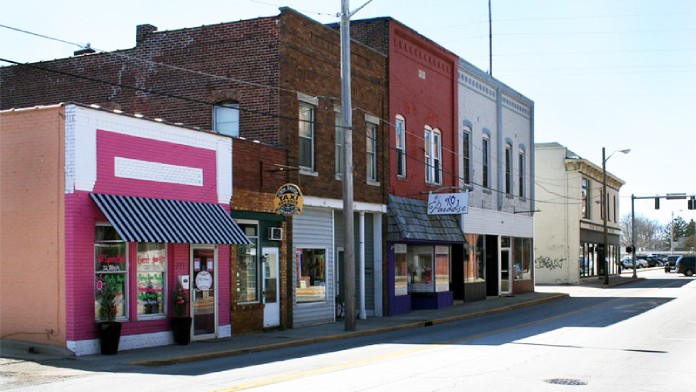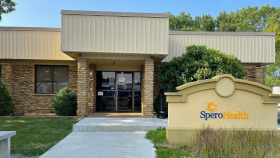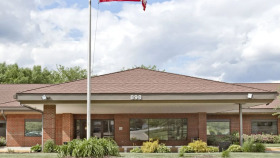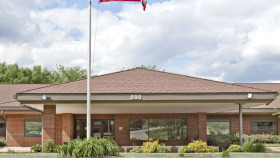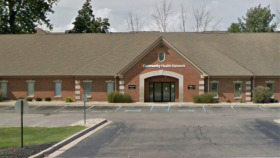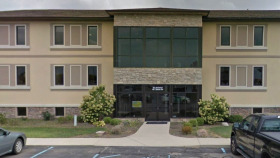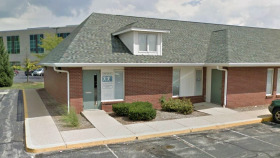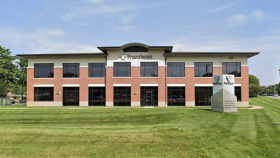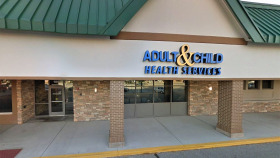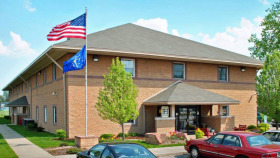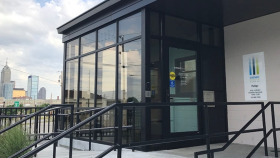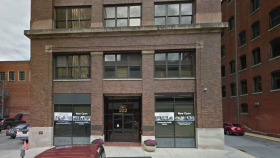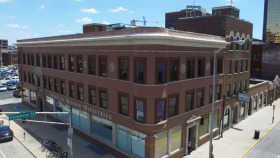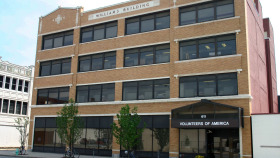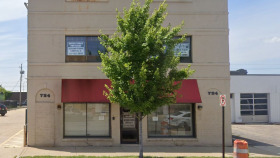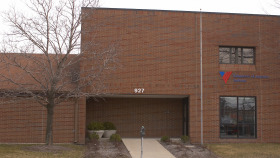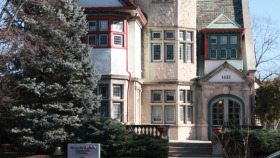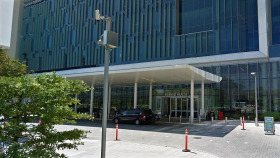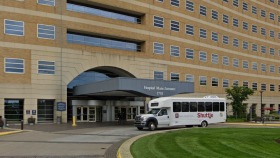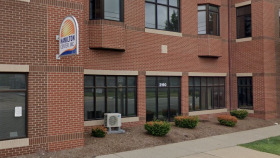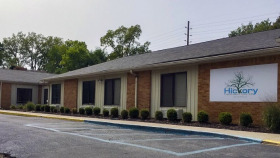Alcohol and Drug Use Statistics in Greenwood, IN
Greenwood and the surrounding Johnson County, like many places in the United States, have struggled with the effects of substance abuse. Below are some data concerning drug and alcohol misuse in Johnson County:1,2,3
In 2021, there were 23 deaths due to psychostimulant overdose.
In 2021, 20% of adults reported excessive drinking.
A total of 6% of motor vehicle deaths were due to alcohol impairment.
In 2020, 2 drivers killed in motor vehicle accidents had a blood alcohol level of .08 or higher.
Levels of Substance Abuse Care
Indiana offers several levels of care for addiction treatment. Some people start with inpatient care and make their way through the various levels, while others can begin the process with less intensive treatment.
Alcohol and Drug Detoxification
Detox is often the first step, allowing you to move on to formal treatment services once it is complete. It is the process of safely and comfortably removing drugs or alcohol from your system, in a supervised setting.
Inpatient Drug and Alcohol Rehab
Inpatient rehab, also called residential treatment, involves living at a facility to receive 24/7 care. Treatment methods typically include individual and group therapy, medication, and nutritional counseling.
Partial hospitalization programs (PHPs)
PHPs allow you to attend treatment at a hospital while living at home. Treatment services provided are usually the same as inpatient care, but you only stay at the hospital during treatment times, then return home.
Intensive Outpatient Programs (IOPs)
IOPs involve attending several hours of counseling over a few days each week. You spend the rest of your time working, at home, or fulfilling other obligations.
Standard Outpatient
Standard outpatient care is the least intensive treatment option, involving just one to two hours of treatment per week. This option is appropriate for highly motivated people with a strong support system.
Relapse Prevention
Relapse prevention, or aftercare, begins once you complete a rehab program. It includes ongoing support, such as 12-step groups, non-12-step groups like SMART Recovery, ongoing therapy, sober living homes, and more.
How to Pay for Substance Addiction Treatment in Greenwood, Indiana
Private Insurance
Every insurance provider is required by law to cover substance abuse and mental health treatment services, to some extent. Indiana residents must contact their provider to learn more about specific coverage, including deductibles and copays.
Indiana Medicaid
Indiana Medicaid consists of multiple programs. Each program serves a different population, but the common theme is to provide services for low-income or under-resourced Indiana residents, including rehab treatment. The programs include:4
- Healthy Indiana Plan
- Hoosier Care Connect
- Hoosier Healthwise
- HoosierRx
- Medicare Savings Program
- Pharmacy Benefits
- Traditional Medicaid
- Indiana Medicaid Covered Services
Indiana Medicare
Indiana Medicare is a government program that provides health-cost coverage for residents who are over age 65 or have certain disabilities. Indiana residents can use Medicare to pay for drug addiction treatment services, including rehab. However, not all rehab facilities accept this form of payment.
Sliding Scale Rehabs
Some rehab programs in Indiana charge for treatment on a sliding scale, meaning participants only pay what they can afford based on income. These sliding-scale options are not always widely advertised, so Indiana residents should ask if they are available.
TRICARE in Indiana
Indiana TRICARE (North region) is a government program providing health insurance coverage to U.S. Armed Forces military personnel, veterans, and their dependents. This coverage includes addiction treatment services, such as rehab.
IHS-Funded Drug Rehabs
Indian Health Service (HIS) is a program that provides free addiction treatment to Indigenous people and Alaskan Natives. These Indiana residents can obtain free treatment even if other coverage is available.
Traveling to and Within Greenwood, IN
 If you’re looking for alcohol or drug rehab in Greenwood, IN, you may want more information on inpatient or outpatient rehabs. You may be interested in finding a rehab center that offers detox. You may even want to know which rehabs in Greenwood offer treatment for free. Whether you’re searching for a Greenwood rehab for yourself or a loved one, here is some information to help you better prepare for your visit to the city:
If you’re looking for alcohol or drug rehab in Greenwood, IN, you may want more information on inpatient or outpatient rehabs. You may be interested in finding a rehab center that offers detox. You may even want to know which rehabs in Greenwood offer treatment for free. Whether you’re searching for a Greenwood rehab for yourself or a loved one, here is some information to help you better prepare for your visit to the city:
- The closest airport to Greenwood is the Indianapolis International Airport.
- Hotel and motel accommodations are plentiful whether you choose to stay in Greenwood or nearby Indianapolis.
- To get around the city, you will need your own private transportation. Greenwood is moderately bike-friendly.
- If you enjoy shopping, you can stop by the Greenwood Park Mall for a unique shopping experience.
- Greenwood has many relaxing parks to enjoy, such as Old City Park and Independence Park.
- If you enjoy golf, you can spend a day at the Hickory Stick Golf Club.
- For family-friendly fun, you can visit the Freedom Springs Aquatics Water Park and the Regal Greenwood Stadium 14.
Indiana Alcohol and Drug Laws
Indiana lawmakers have enacted the following policies related to substance misuse and overdoses1,2,3,4
Indiana Lifeline Law: This policy provides immunity for the crimes of minor possession, minor consumption, minor transport, and public intoxication for Indiana residents who reveal themselves to law enforcement while seeking medical assistance for a person suffering from an alcohol-related health emergency.
Social Host Liability: Indiana residents can be held liable if they give alcohol to someone they knew was already intoxicated and that person’s intoxication leads to injuries, damage, or death. It is also illegal to knowingly provide a place for minors to drink alcohol in Indiana.
Drinking in Public: In Indiana, it is illegal to be drunk in a public place if your behavior is dangerous, alarming, disruptive, or annoying. It is also illegal to be drunk or high on public transportation or at bus stations and airports.
Involuntary Commitment: Indiana Code 12-23-11.1-1 states that an Indiana resident who is a drug abuser, alcoholic, or incapacitated by alcohol may be involuntarily committed, except for those who are charged with or convicted of an offense that makes them ineligible for treatment.
Good Samaritan and Naloxone Access Law: this combined law is designed to prevent overdose deaths. The Good Samaritan protections provide limited criminal immunity for controlled substance and drug paraphernalia possession for Indiana residents who seek help in the event of an overdose.
This immunity is limited to those who call for help and not the person experiencing the overdose. Immunity is also limited to those who have obtained naloxone through the channels outlined in this law, which allows pharmacies and health professionals to provide naloxone directly or by standing order to those at risk of opioid-related overdose and those who are in a position to assist individuals at risk of overdose.
Resources
- Indiana Next Level Recovery Indiana. (2022). Indiana Drug Data Dashboard.
- University of Wisconsin Population Health Institute. (2022). County Health Rankings and Roadmaps: Indiana-Johnson County.
- National Highway Traffic Safety Administration. (2022). Persons Killed by State-Indiana:Johnson County.

